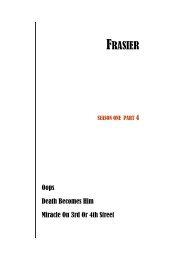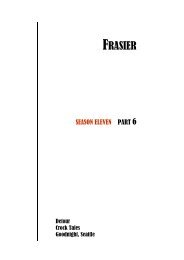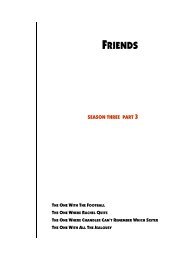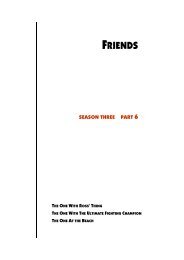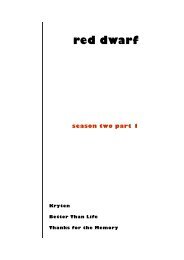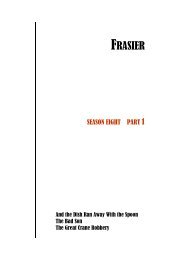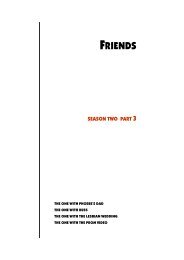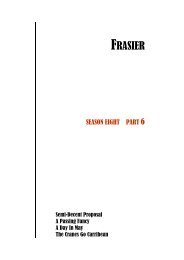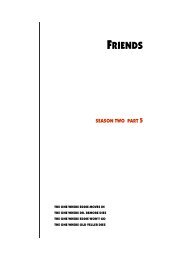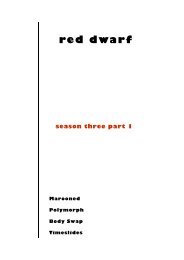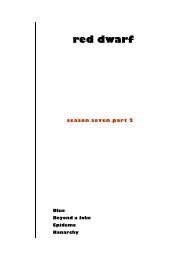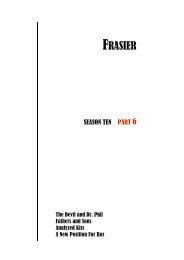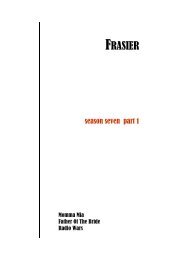Create successful ePaper yourself
Turn your PDF publications into a flip-book with our unique Google optimized e-Paper software.
<strong>paul</strong> <strong>simon</strong> – 1984 <strong>playboy</strong> <strong>interview</strong> small black beetles: the overkill<br />
Simon: Some of the songs on that album I liked : The Boxer<br />
was a good song.<br />
Playboy: What inspired it?<br />
Simon: I think I was reading the Bible around that time.<br />
That's where I think phrases such as 'workman's wages'<br />
came from, and 'seeking out the poorer quarters'. That was<br />
biblical. I think the song was about me: everybody's<br />
beating me up, and I'm telling you now I'm going to go<br />
away if you don't stop. By that time we had encountered<br />
our first criticism. For the first few years, it was just pure<br />
praise. It took two or three years for people to realize<br />
that we weren't strange creatures that emerged from<br />
England but just two guys from Queens who used to sing<br />
rock'n'roll. And maybe we weren't real folkies at all! Maybe<br />
we weren't even hippies!<br />
Playboy: What was happening to you and Artie during the<br />
period that preceded Bridge over Troubled Water?<br />
Simon: Artie was off in Mexico making Catch-22. I was<br />
writing. One of the songs was about his going away to act<br />
in that film : The Only Living Boy in New York. "Tom, get your<br />
plane right on time" was a reference to Tom and Jerry. "Fly<br />
down to Mexico. Here I am / The Only living boy in New<br />
York." I was alone.<br />
Playboy: When you wrote bridge Over Troubled Water, did<br />
you know immediately that you had written a hit?<br />
Simon: No, I did say, "This is very special." I didn't think it<br />
was a hit, because I didn't think they'd play a five minute<br />
song on the radio. Actually, I just wrote it to be two verses<br />
done on the piano. But when we got into the studio, Artie<br />
and Roy Halee, who coproduced our records, wanted to<br />
add a third verse and drums to make it huge. Their<br />
tendency was to make things bigger and lusher and<br />
sweeter. Mine was to keep things more raw. And that<br />
mixture, I think, is what produced a lot of the hits. It<br />
probably would have been a hit with two verses on the<br />
piano, but it wouldn't have been the monster hit that it<br />
became. I think a lot of what people were responding to<br />
was that soaring melody at the end? Funny, I'm reminded<br />
of the last verse. It was about Peggy, whom I was living<br />
with at the time: "Sail on, silver girl ... / Your time has come<br />
page 27



